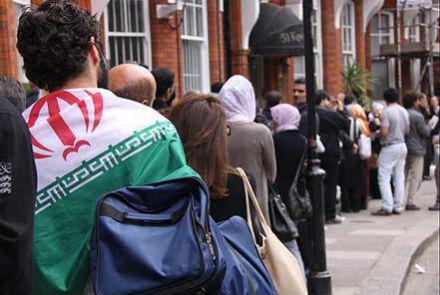Polling stations across Iran opened at 8am local time on Friday around the country with another high voter turnout expected.
According to Iran’s Press TV long lines had already formed by 8am at the 63,500 polling stations, which are set to close at 6pm Friday. However, reports indicate that voting hours could be extended – as has happened in the past due to high voter turnout.
Among the first to cast their votes was the Supreme Leader Ayatollah Seyyed Ali Khamenei. He called on all 56 million eligible voters to cast their ballots.
Press TV reported him as saying the 2017 elections as very important, saying the destiny of the country is in the hands of the people.
"The destiny of the county is in the hands of the people who choose the chief executive. They should heed the importance of this task," he said.
In addition to voting for a president, Iranians are also casting their ballots for city and village councils.
The 2017 presidential race will see Iranian voters decide on the fate of moderate President Hassan Rouhani, seen by many as the frontrunner, and that of Ebrahim Raisi, a cleric and close ally and protege of Khamenei.
This year’s presidential race also features two low-key contenders - former deputy judiciary chief and member of Iran’s Expediency Council Mostafa Aqa-Mirsalim and former vice president, Mostafa Hashemi-Taba.
Rouhani has been campaigning on the platform of an active foreign policy meant to enhance international relations, while Raeisi has vowed a strong economic management towards the elimination of poverty and unemployment, reports Press TV.
Based on Iran’s election law, if no candidate manages to secure over 50 percent of the votes, a runoff will take place a week later.
Iranian presidents serve four-year terms and are subordinate to the supreme leader but still powerful with considerable influence over both domestic policy and foreign affairs, reported AP.
According to their report, an initial field of over 1,600 hopefuls registered to run in the election but a 12-member panel vetted the candidates and narrowed the field to six, including Rouhani. The council has never allowed a woman to run for president and routinely rejects candidates calling for dramatic reform.
Of the six candidates approved, two have since dropped out.


